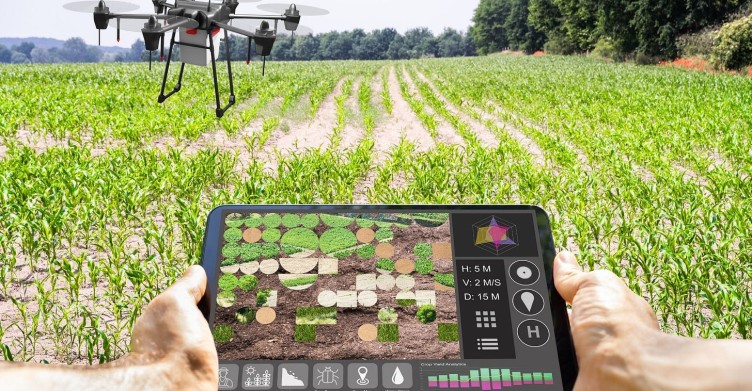Since ancient times, China has been an agricultural country, with both huge demand and large-scale production of a wide range of agricultural products. The area of arable land per capita in China is well below the world average. The main causes of the appearance of 5G and AI in this millennial agricultural China!
In addition, the quality of the upper arable land is relatively low. According to figures from the World Bank and the National Bureau of Statistics, in 2016, the area of cultivated land in China was 135 million hectares, or 8% of the total cultivated land in the world; while the total population was 1.38 billion, or 19% of the world’s population.
Also, the quality rate of agricultural land is low, which affects food production and the quality of agricultural products. And unfortunately, China’s agricultural sector is often hit by natural disasters, causing average annual crop damage of nearly 20,000 hectares and grain production losses of 30 to 40 billion kilograms.
These are the main reasons behind this continuous race for technological development.
In recent years, sophisticated technologies such as AI, big data, IoT and 3S technology (RS remote sensing technology, GIS geographic information systems and GPS global positioning systems) have been intensively deployed to accelerate the modernization of Chinese agriculture.
These new technologies are applied mainly in planting, breeding and agricultural services.
Pig farming and AI?
Let’s take a simple but symbolic example: pigs. How are breeders using AI to develop their breeding?
Chinese farmers are testing a new artificial intelligence system using a combination of machine vision, voice recognition and temperature sensors to track pigs’ movements, health and welfare.
The idea is to use computer vision to track the pigs via cameras that will read ID numbers tattooed on their bodies. The initial goal is to use AI to count animals. But Alibaba sees much further. It is a question of using infrared sensors to monitor the body temperature of pigs and cross-referencing this data with their daily movements in order to estimate their level of health.
There are also plans to use voice recognition to combat the mortality of piglets run over by their mothers by detecting their cries. This system could reduce mortality by 3% and therefore increase annual production.
Voice analysis could also help prevent the spread of disease by monitoring the coughing of pigs. Alibaba says using AI can reduce farming costs and help improve meat quality. Welcome to the farming of the future!


